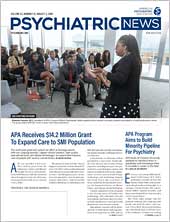For the first time in over 40 years, the Food and Drug Administration (FDA) is proposing updates and revisions to its guidance on how industries should develop and clinically test drugs intended to treat major depressive disorder (MDD). This new guidance finally reflects the many antidepressant advances made since 1977, such as finding new rapid mechanisms of action and gaining a better understanding of depression relapse.
Perhaps the most noticeable updates are the new recommendations for clinical trials involving fast-acting antidepressants such as ketamine. Whereas short-term efficacy studies of traditional antidepressants typically need six to eight weeks to demonstrate an effect, the new guidance states that efficacy of rapid-acting drugs should be demonstrated within one week. However, clinical trials of rapid-acting drugs should be continued after this period so that the durability of rapid-acting antidepressants can be determined.
The FDA also highlighted that rapid-acting drugs have their own specific set of safety concerns. NMDA receptor-targeting drugs like ketamine, for example, can cause Olney lesions—fluid-filled vesicles in the brain that sometimes precede permanent neuronal injury or death. Therefore, for all NMDA receptor drugs, investigators should complete preclinical studies testing for acute neurotoxic effects before conducting any human studies, according to the FDA.
These are among other notable recommendations in the new guidance:
•
Given the high placebo response increasingly seen in clinical antidepressant studies, noninferiority trials that compare two active drugs are not practical, and thus all trials of new antidepressant agents should include a placebo group.
•
Studies for maintenance treatment should last at least six months; long-term safety and tolerability measurements should also be incorporated into the design of all maintenance trials. The FDA also noted that it was interested in maintenance studies that explored the effects of lower drug doses; the results of these studies could be included in drug labeling.
•
Even for antidepressants already approved for adult MDD, at least two adequately sized and well-controlled efficacy trials should be conducted in relevant pediatric patients (along with pharmacology and safety studies) before an approved drug can be given a pediatric indication. For pediatric MDD, children aged 7 through 12 and adolescents aged 13 through 17 are considered unique populations with their own needs.
•
Clinical trial sponsors are encouraged to enroll demographically broad populations in studies whenever possible. This includes special populations such as elderly patients or individuals with medical problems such as renal insufficiency, cardiac disease, HIV, or hepatitis C. In addition, patients with a history of substance abuse and/or a history of suicidal ideation should not be automatically excluded from trials.
•
Related to the above, the FDA made no comments on enrollment restrictions typically applied to pregnant women. However, the guidance did suggest that drug sponsors should collect and register safety data from women who become pregnant during a trial and become inadvertently exposed to an antidepressant or pregnant women who use approved antidepressants in a postmarketing study.
As with the existing industry guidance, the FDA noted these updates reflect the agency’s current thinking on MDD and represent recommendations and not requirements. The draft guidance is intended to stimulate continued discussions among the Division of Psychiatry Products, pharmaceutical companies, the academic community, and the public.
The FDA will accept public comments and suggestions on the new draft guidance until August 20, at which point it will finalize the document. ■
The draft document, “Major Depressive Disorder: Developing Drugs for Treatment. Guidance for Industry,” can be accessed
here. Comments may be submitted
here.
